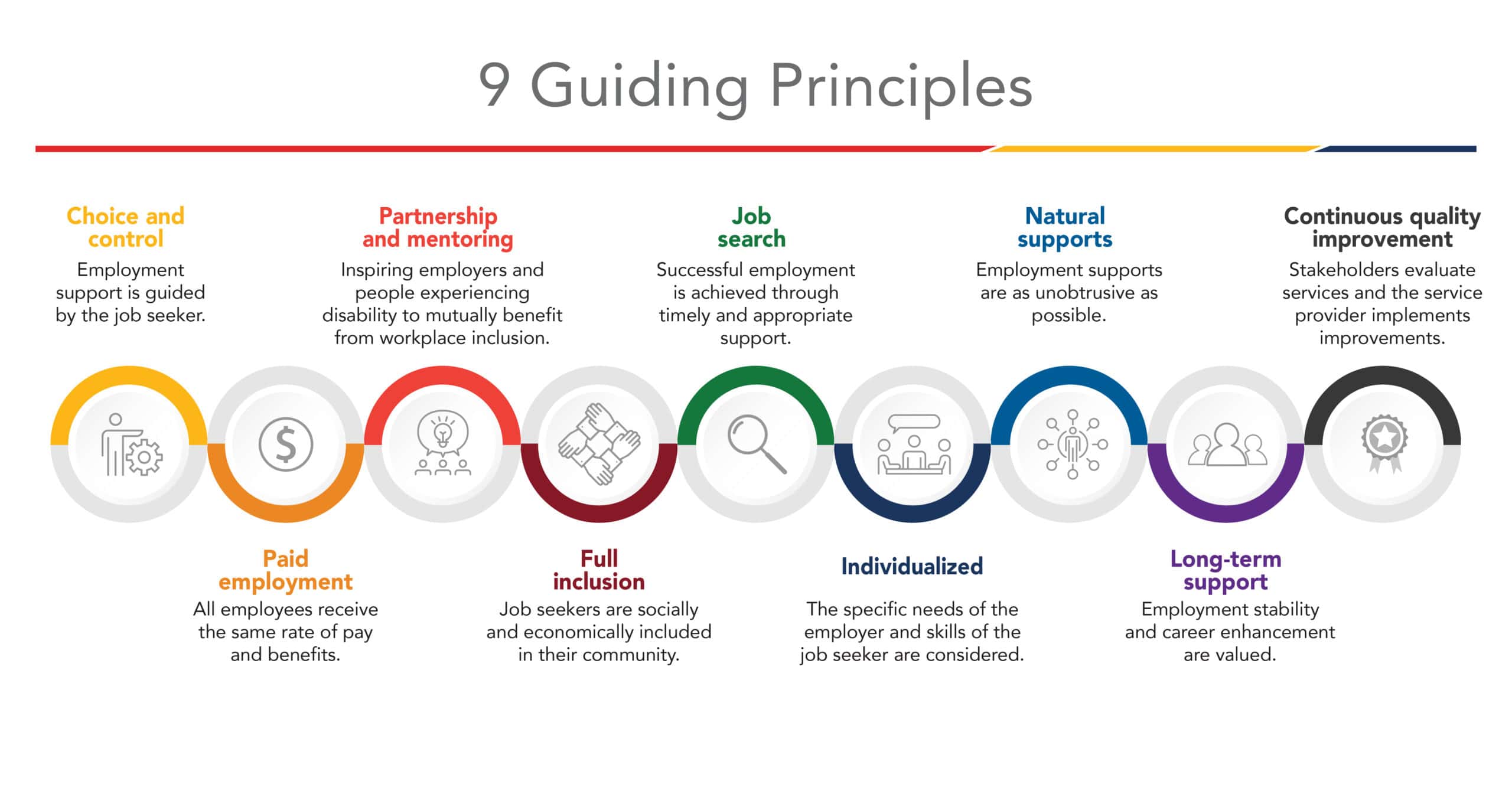Guiding Principles
CASE Commitment to Person-Centred Language
CASE is committed to advancing the inclusion of persons who experience disability in the Canadian workforce. We recognize the powerful role that language plays in shaping perspectives, assumptions, and beliefs.
We understand that words can have a significant impact on how people are viewed and treated in the workplace. We acknowledge that language is an influential and ever-evolving force for social change.
CASE believes that we must understand the power of language within the context of the systemic devaluing of persons who experience disability. To do this requires ongoing work to address unconscious bias and to recognize the systemic inequalities that we may inadvertently perpetuate. We are committed to contributing to healthy workplace cultures that affirm and celebrate human diversity.
CASE maintains a commitment to person-centred language in all of our communication. We believe that:
- It is critical to respect the language choice of persons who experience disability to self-identify as they wish.
- Language should respect a person’s whole being and must acknowledge the impact that culture, personal experience, and multiple identities can have.
- Changing our language requires intention and effort. Person-centred language can be integrated into our daily actions to create empowering workplace cultures that are respectful to everyone.
- The commonly accepted meaning and impacts of language are continuously changing. We have a responsibility as an association to reflect and explore the impacts of the language we use over time.
- While CASE will use person-centred language in all our communication, we mean no disrespect to people who choose to identify themselves in other ways.
Person-centred language focuses on the person first. It recognizes that, regardless of any over-arching disability labels that may have been attributed to a person, their qualities, strengths and experiences are unique to them. A commitment to using person-centred language challenges us to advocate for the use of respectful and empowering language at all times.

Supported employment has been used for decades to successfully connect diverse job seekers with sustainable employment.
CASE has drawn on global research, national surveys and local public engagement to develop supported employment values to guide the organization’s work.
CASE believes that all Canadians, including persons experiencing disability, can work and, indeed, have the right to use their skills to earn a living wage. Employment is a valuable part of a meaningful life. Employment is a pathway to financial independence and an opportunity to contribute to communities, form personal bonds, and learn and grow.
Even so, in 2022, the unemployment rate for persons aged 16 to 64 experiencing disability was 6.9%—nearly twice as high as that for persons without disability (3.8%) (StatCan 2022).
Job seekers and employees experiencing disability
Job seekers and employees who experience disability, just like anyone else starting a new career or job, may require supports and assistance to achieve employment success in both the short and long terms. Suppport should be provided and encouraged.
The creation of inclusive recruitment and selection processes, as well as inclusive and accessible workplaces, is crucial to creating a labour force that is welcoming and equitable to all.

It is in this context that CASE has established nine guiding principles that inform and drive our work:

Want to know more about us?
Click on the links provided to learn more about CASE.

About CASE
Learn More

Our Members
Learn More

About Supported Employment
Learn More

Board of Directors
Learn More

Staff
Learn More

Careers
Learn More

Contact Us
Learn More
Want to Know More About Us?
Click on the links provided to learn more about CASE.
About CASE
Learn More
Our Members
Learn More
About Supported Employment
Learn More
Best Practices
Learn More
Board of Directors
Learn More
Staff
Learn More
Careers
Learn More
Contact Us
Learn More
Newsletter
Sign up for our e-newsletter and stay current with all the latest from CASE and supported employment work across Canada and beyond. You’ll also receive our latest promotions and offers. We will not share your email address with any third-party vendors. See our Privacy Policy (at the link below under Quick Links) for full details on how we protect your personal information.
Connect With CASE
Tell us about new, innovative supported employment initiatives your organization is spearheading. Please send us your ideas or advice on how CASE can better serve you.

